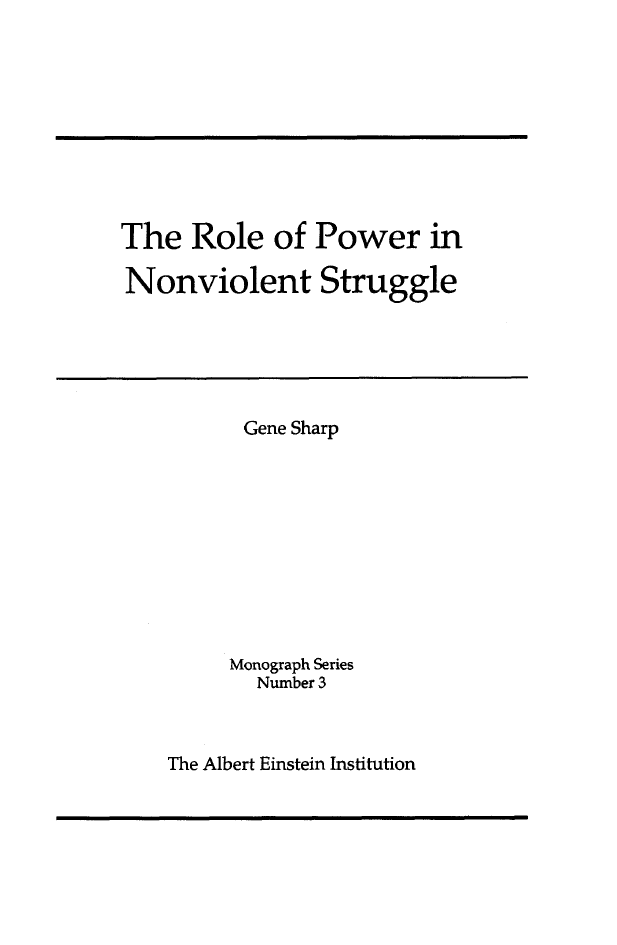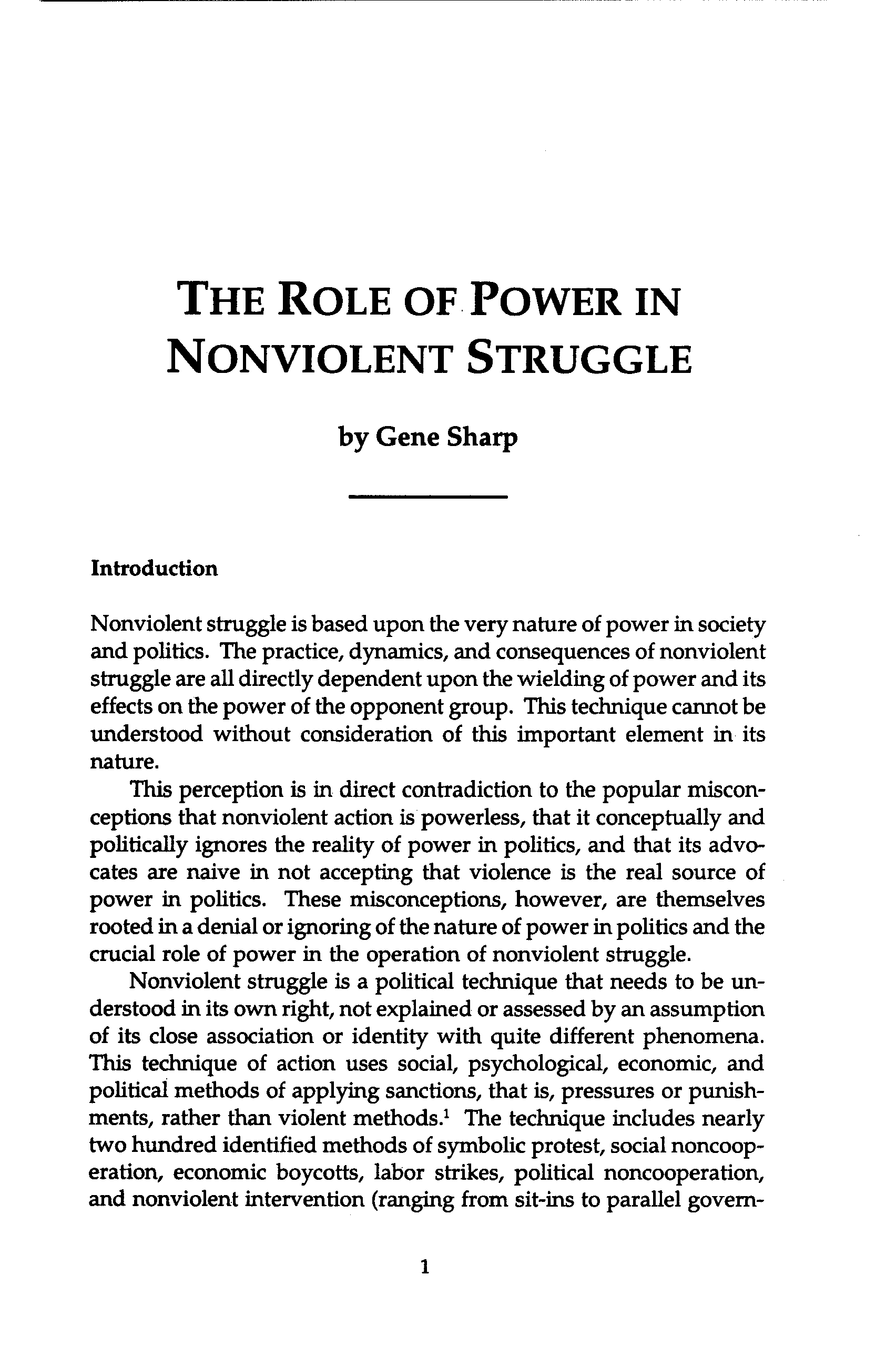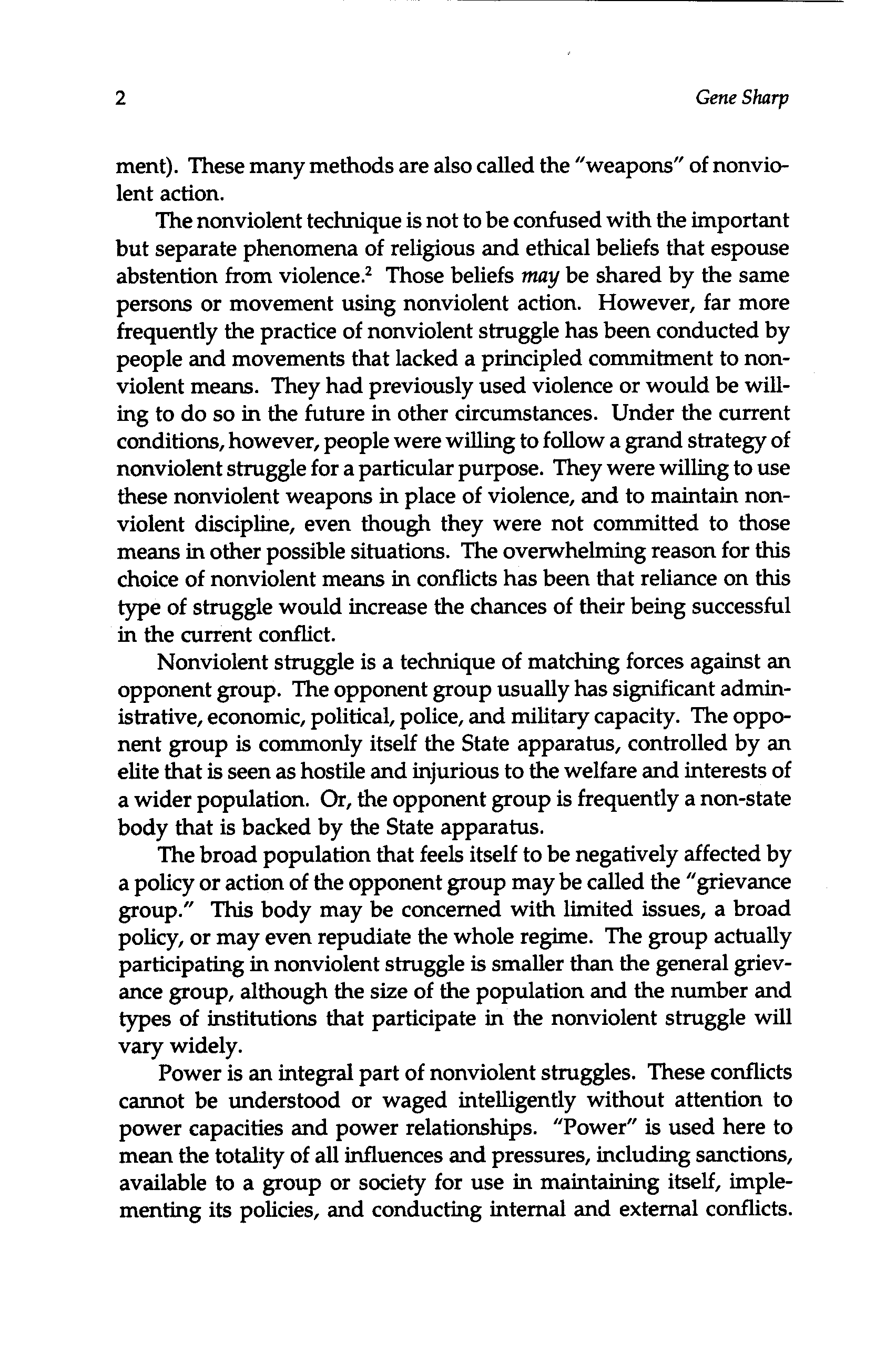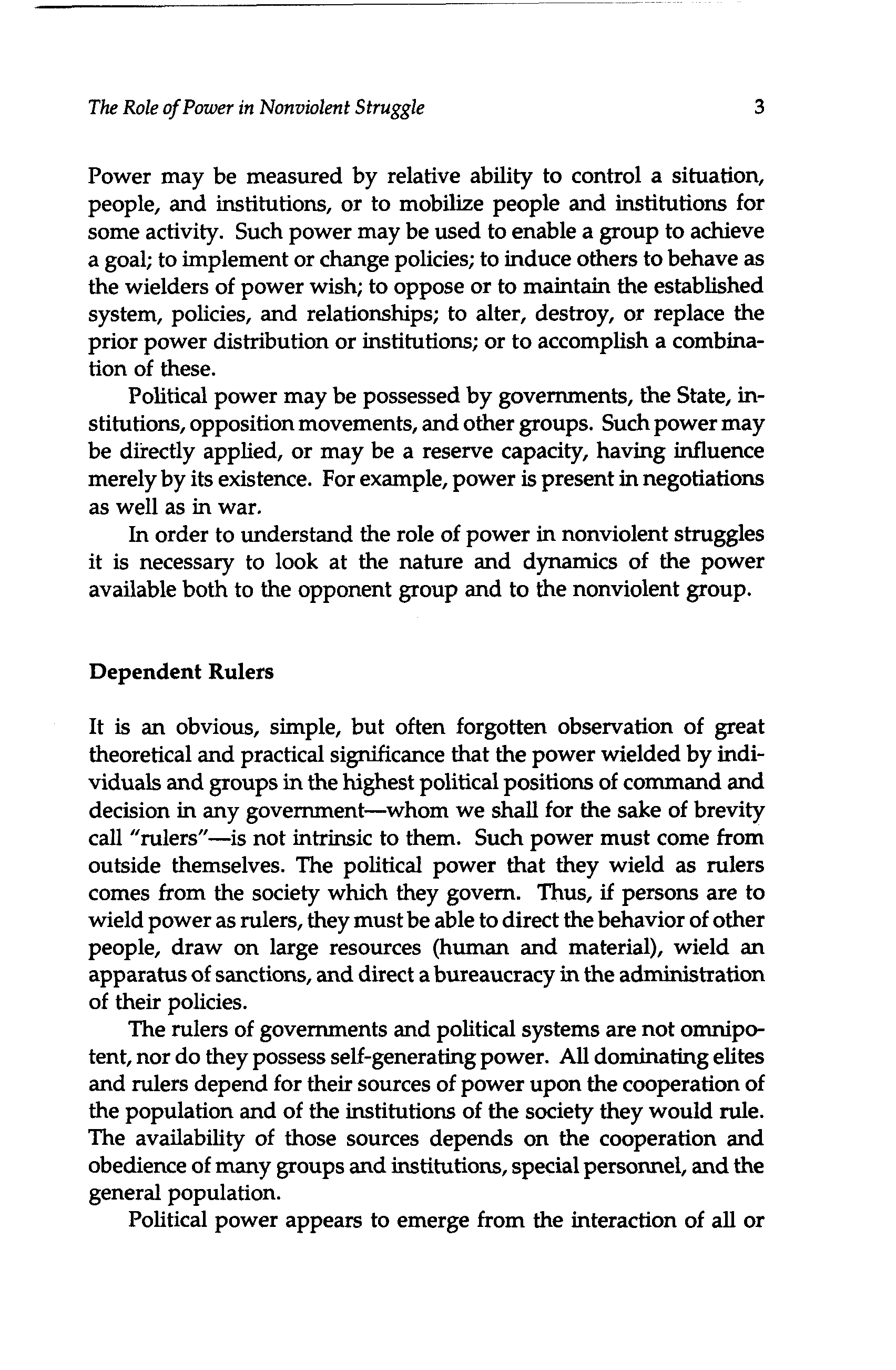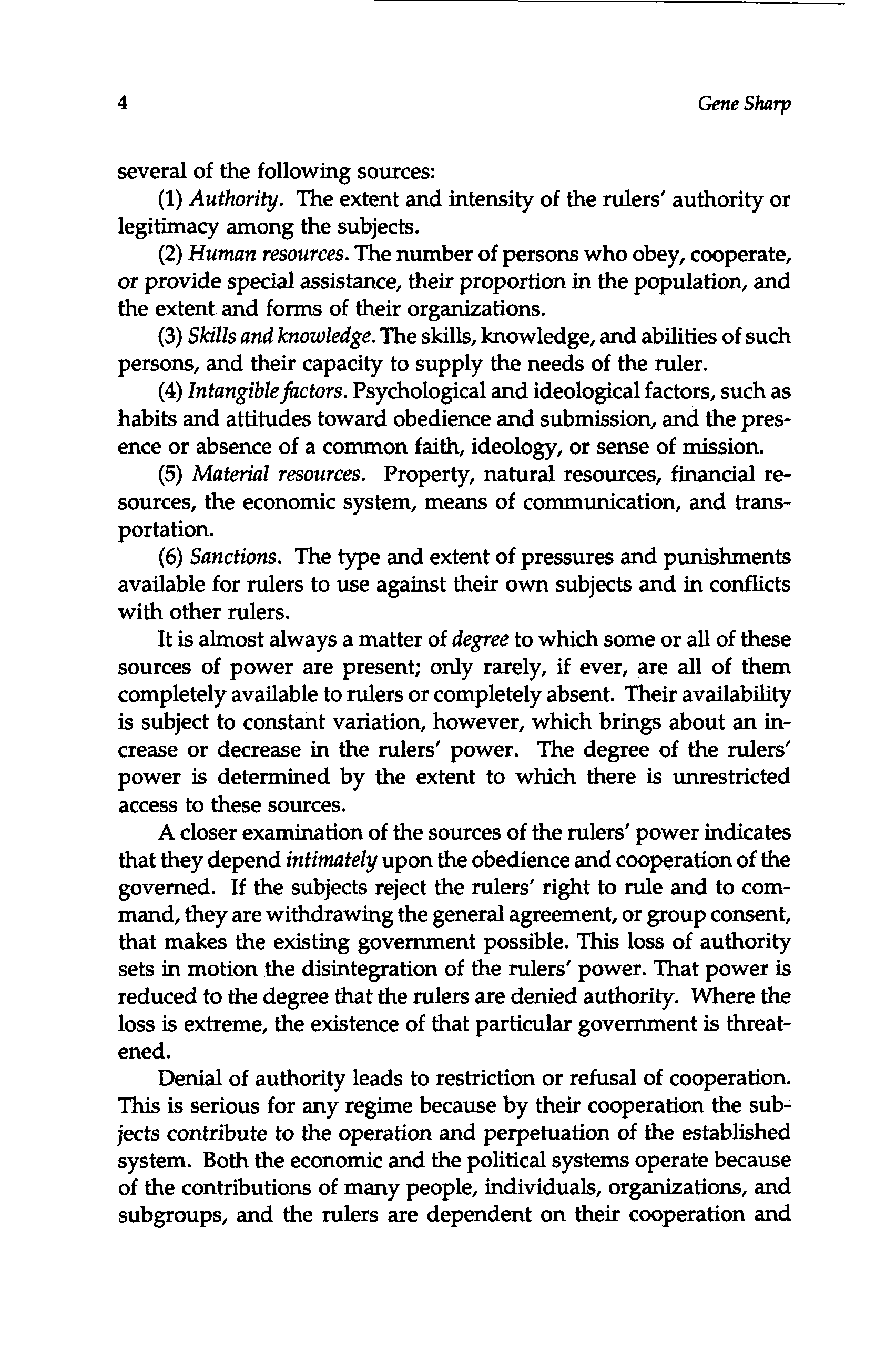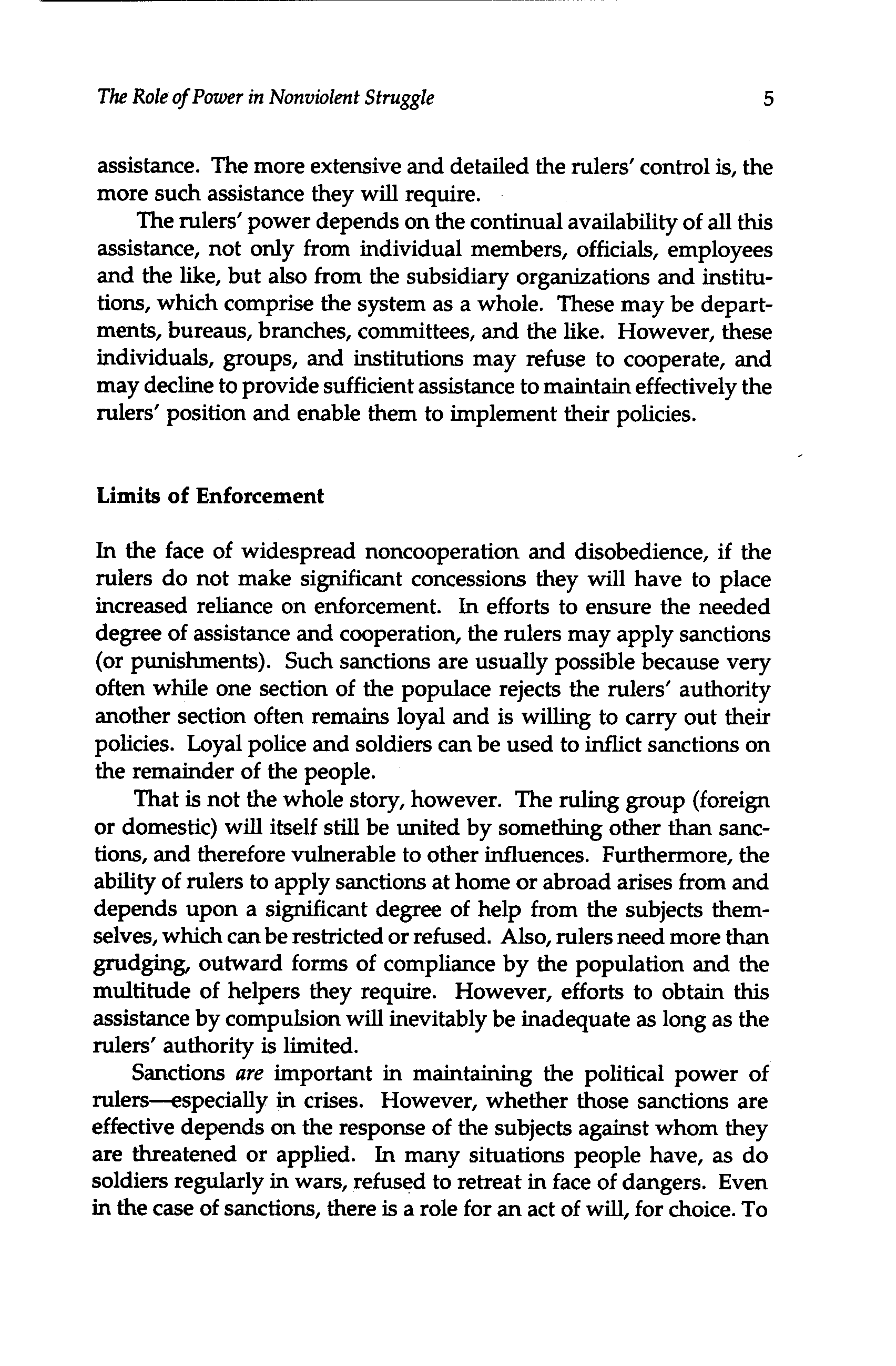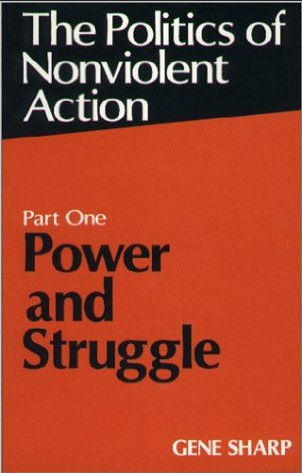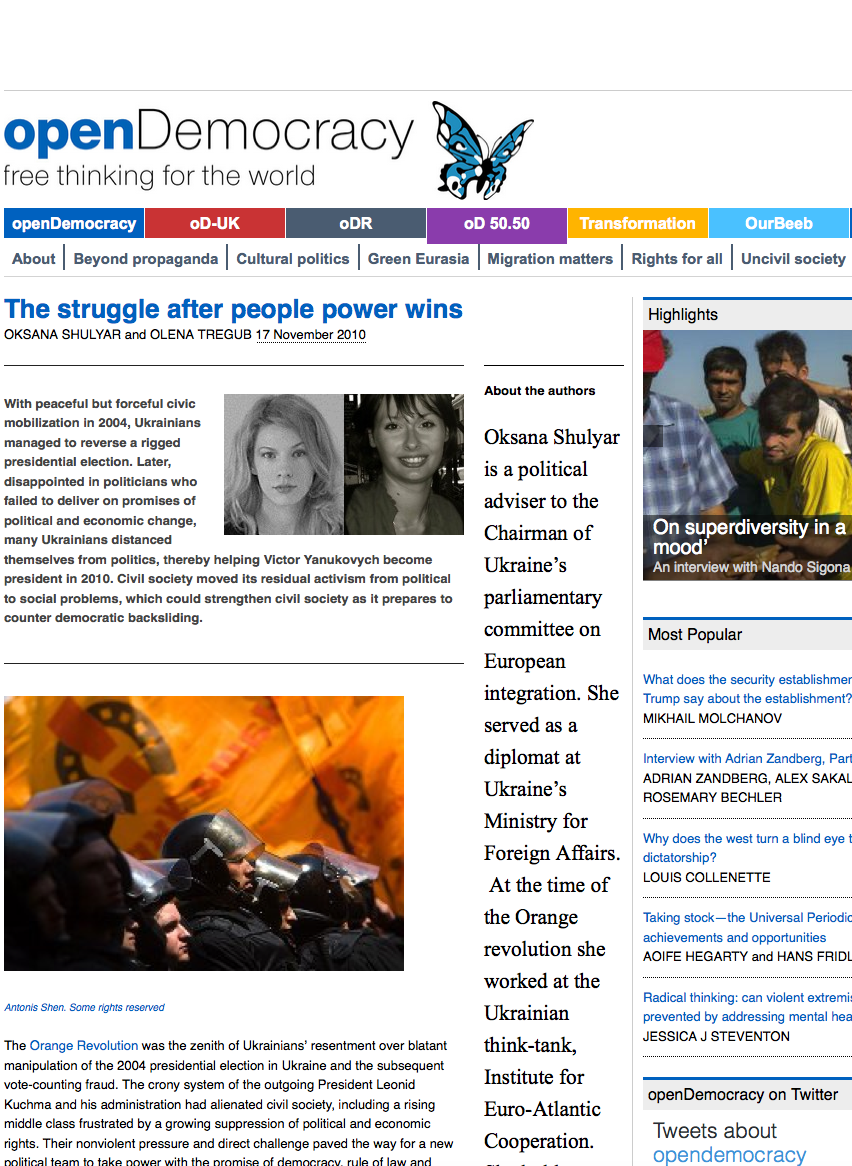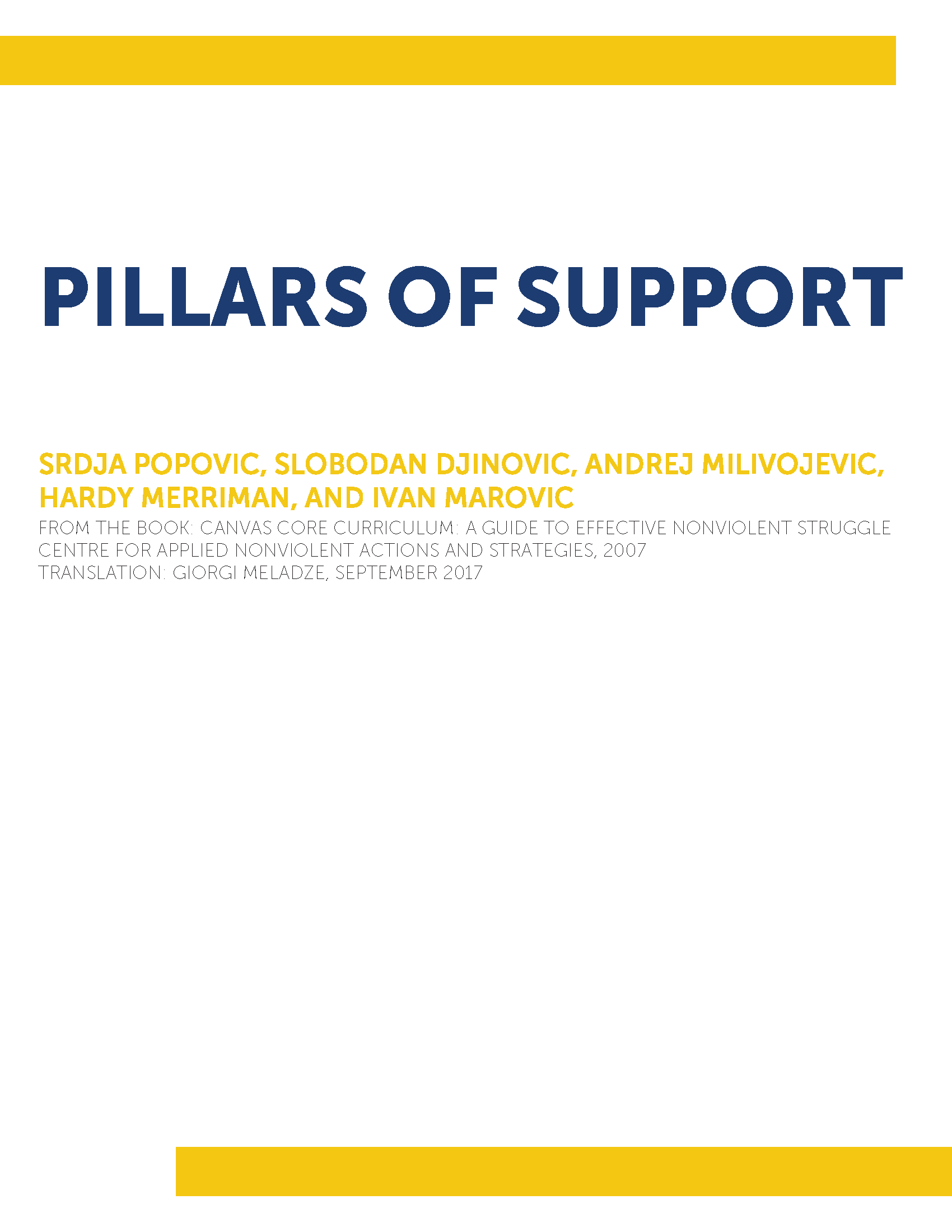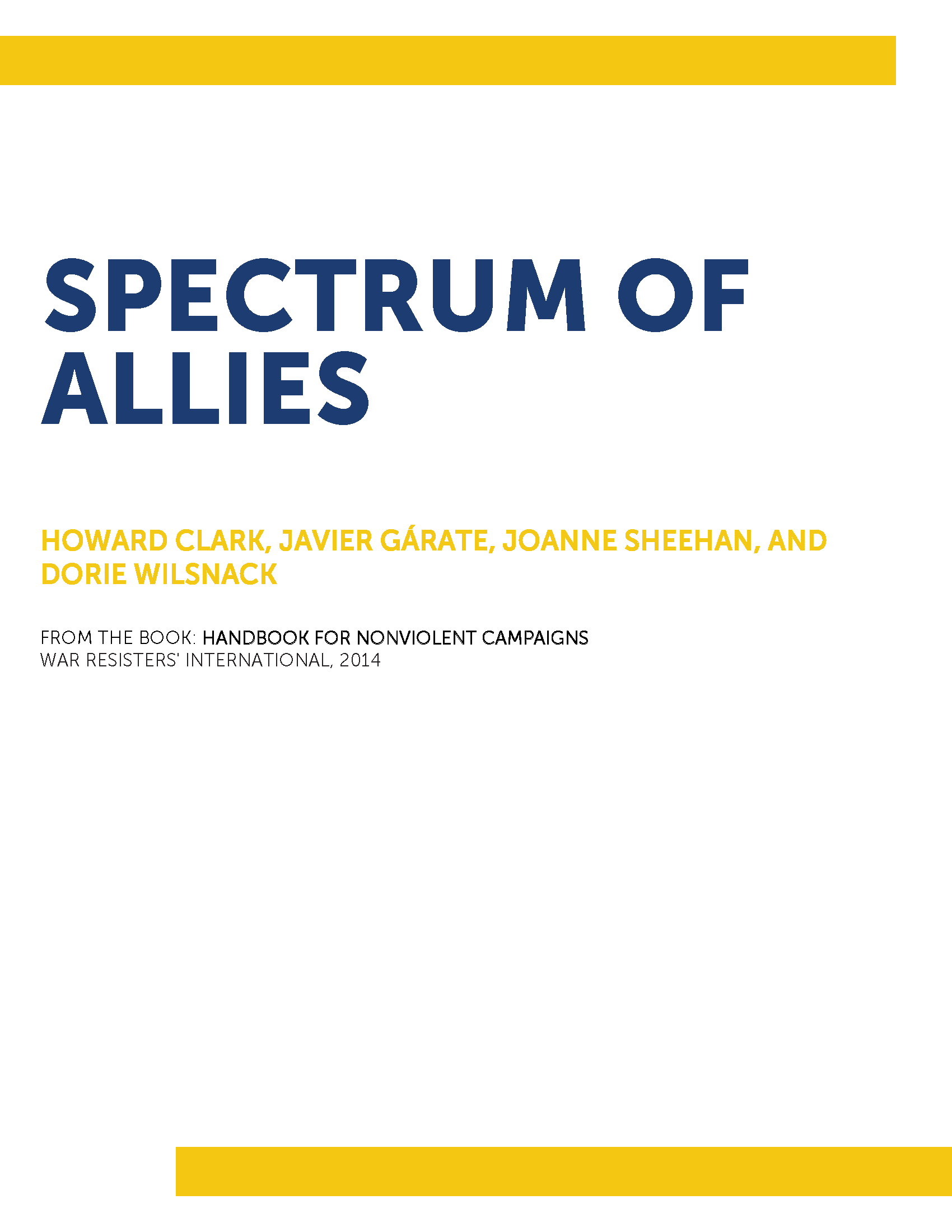The Role of Power in Nonviolent Struggle
“Nonviolent action . . . is capable of wielding great power even against ruthless rulers and military regimes,” writes Sharp, “because it attacks the most vulnerable characteristic of all hierarchical institutions and governments: dependence on the governed.” Abstracted from Sharp’s classic three-volume work, The Politics of Nonviolent Action, this monograph summarizes the core concepts behind the technique of nonviolent struggle.
The Albert Einstein Institution — 1990
Boston
Reprinted in 1994 and 2000
ISBN-10: 1880813025
ISBN-13: 978-1880813027
Material on this page appears with permission of The Albert Einstein Institution (AEI). For questions regarding translation, reproduction, or purchase, please contact AEI.
